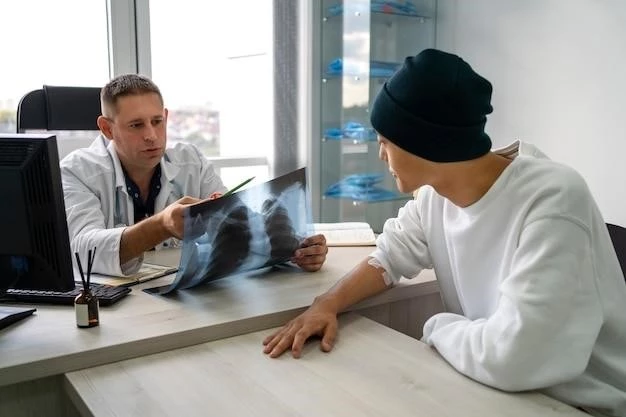Understanding Chondrodysplasia Punctata 1
An overview of Chondrodysplasia Punctata 1 is essential to understand this rare genetic disorder․ Explore the symptoms, causes, diagnosis, treatment options, prognosis, genetic counseling, and research for a comprehensive understanding․
Symptoms of X-Linked Recessive Chondrodysplasia
Recognizing the symptoms of X-linked recessive chondrodysplasia is crucial for early detection and intervention․ Look out for characteristic features like skeletal abnormalities, short stature, cataracts, and developmental delays․ Other signs include distinctive facial features, nasal hypoplasia, ear abnormalities, and potential intellectual disabilities․
Regular monitoring and consultation with healthcare professionals can help manage symptoms effectively․ Genetic testing may be necessary for a definitive diagnosis․ Seek medical advice promptly if you notice any concerning symptoms in yourself or a loved one․
Causes of Chondrodysplasia Punctata 1
Understanding the causes of Chondrodysplasia Punctata 1 involves genetic factors․ This rare condition is typically linked to mutations in the ARSE gene, which leads to the impaired breakdown of certain fats in the body․ These gene mutations disrupt normal skeletal development, manifesting in the characteristic features of the disorder․
Genetic counseling can provide valuable insights into the inheritance pattern and likelihood of passing on the condition to future generations․ Stay informed and consult with healthcare professionals to better comprehend the genetic underpinnings of Chondrodysplasia Punctata 1․
Diagnosis and Testing for X-Linked Recessive Diseases
Accurate diagnosis and testing are pivotal in identifying X-linked recessive diseases like Chondrodysplasia Punctata 1․ Healthcare providers may conduct genetic testing, imaging studies, and clinical evaluations to confirm the condition․ It is essential to consult with specialists familiar with rare genetic disorders for an accurate diagnosis․
Early detection through comprehensive testing can lead to timely intervention and improved outcomes․ Stay proactive in seeking medical advice if you suspect a genetic condition in yourself or a family member․ By understanding the testing procedures, you can make informed decisions regarding treatment and management options․
Treatment Options for Chondrodysplasia Punctata
When exploring treatment options for Chondrodysplasia Punctata, a multidisciplinary approach is often necessary․ Management may focus on addressing symptoms and improving quality of life․ Orthopedic interventions, physical therapy, and assistive devices can help manage skeletal abnormalities and enhance mobility․
Individualized care plans tailored to the patient’s specific needs are crucial in optimizing treatment outcomes․ Regular follow-ups with healthcare providers can monitor progression and adjust interventions as needed․ Collaborate closely with a team of specialists to ensure comprehensive and holistic care for individuals diagnosed with Chondrodysplasia Punctata․
Prognosis and Life Expectancy of Chondrodysplasia Patients
The prognosis and life expectancy of individuals with Chondrodysplasia Punctata can vary based on the severity of symptoms and the presence of associated complications․ While the condition is chronic and may require lifelong management, early intervention and comprehensive care can significantly improve outcomes․
It is important to work closely with healthcare providers to optimize treatment strategies and address any emerging medical concerns promptly․ By staying proactive in monitoring symptoms and adhering to treatment plans, individuals with Chondrodysplasia Punctata can lead fulfilling lives and achieve a positive prognosis;
Genetic Counseling for X-Linked Recessive Conditions
Genetic counseling plays a vital role for individuals and families affected by X-linked recessive conditions like Chondrodysplasia Punctata․ It offers valuable insights into the genetic basis of the disorder, inheritance patterns, and risks of passing it onto future generations․
Through genetic counseling sessions, families can make informed decisions, understand available testing options, and explore reproductive choices․ Genetic counselors provide support, guidance, and resources to empower individuals in managing genetic conditions effectively․ Seeking genetic counseling can enhance understanding and facilitate proactive healthcare planning․

Research and Future Perspectives on Chondrodysplasia Punctata 1
Ongoing research into Chondrodysplasia Punctata 1 offers hope for future advancements in understanding and managing this rare genetic disorder․ Scientists and healthcare professionals are working towards identifying new treatment modalities, enhancing diagnostic techniques, and uncovering potential therapeutic targets․
Engaging with clinical trials, supporting research initiatives, and raising awareness about Chondrodysplasia Punctata can contribute to further discoveries and improved outcomes for individuals affected by this condition․ Stay informed about the latest developments in research to stay proactive and involved in shaping the future landscape of Chondrodysplasia Punctata care․
